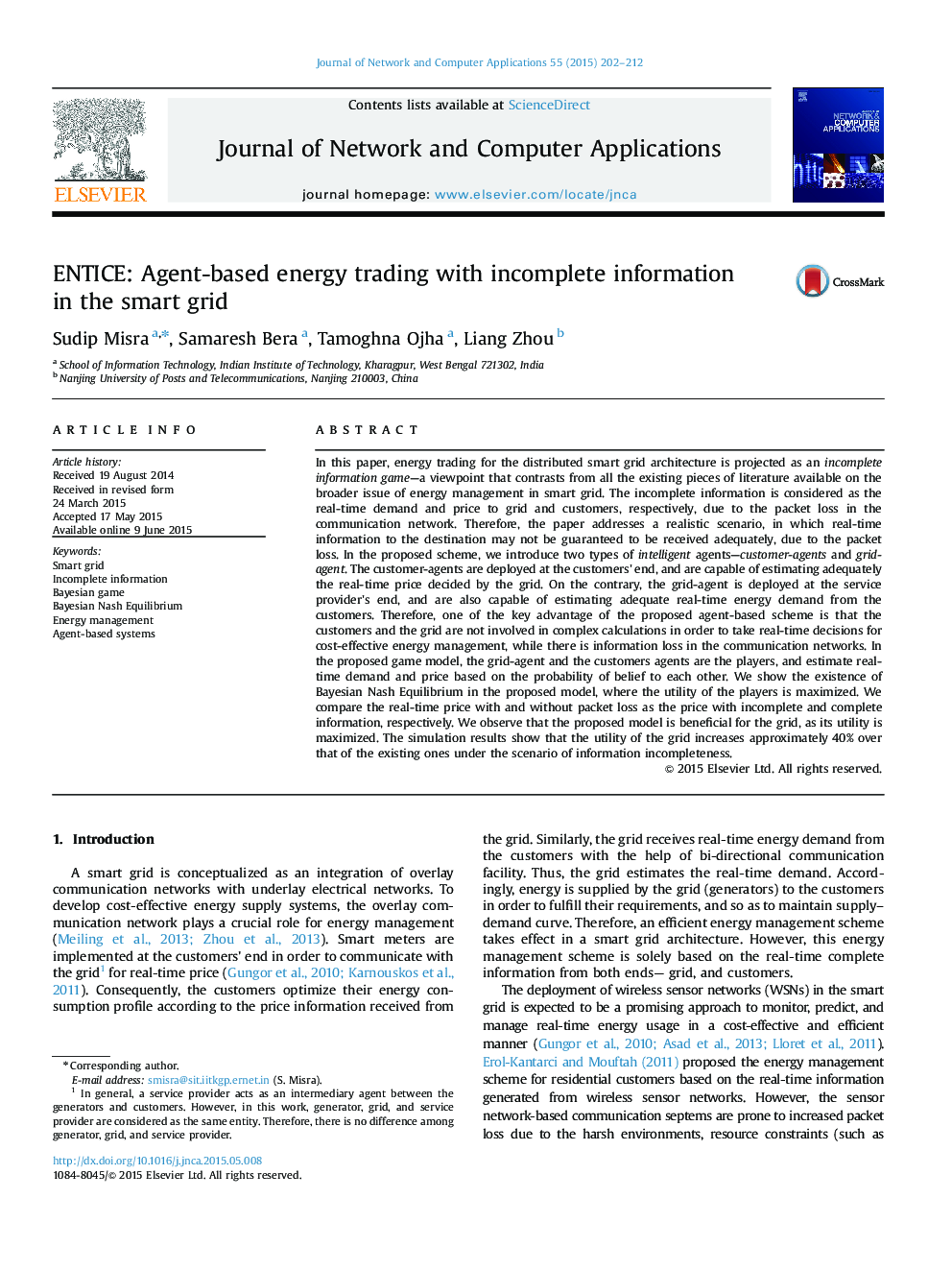| Article ID | Journal | Published Year | Pages | File Type |
|---|---|---|---|---|
| 6885077 | Journal of Network and Computer Applications | 2015 | 11 Pages |
Abstract
In this paper, energy trading for the distributed smart grid architecture is projected as an incomplete information game-a viewpoint that contrasts from all the existing pieces of literature available on the broader issue of energy management in smart grid. The incomplete information is considered as the real-time demand and price to grid and customers, respectively, due to the packet loss in the communication network. Therefore, the paper addresses a realistic scenario, in which real-time information to the destination may not be guaranteed to be received adequately, due to the packet loss. In the proposed scheme, we introduce two types of intelligent agents-customer-agents and grid-agent. The customer-agents are deployed at the customers׳ end, and are capable of estimating adequately the real-time price decided by the grid. On the contrary, the grid-agent is deployed at the service provider׳s end, and are also capable of estimating adequate real-time energy demand from the customers. Therefore, one of the key advantage of the proposed agent-based scheme is that the customers and the grid are not involved in complex calculations in order to take real-time decisions for cost-effective energy management, while there is information loss in the communication networks. In the proposed game model, the grid-agent and the customers agents are the players, and estimate real-time demand and price based on the probability of belief to each other. We show the existence of Bayesian Nash Equilibrium in the proposed model, where the utility of the players is maximized. We compare the real-time price with and without packet loss as the price with incomplete and complete information, respectively. We observe that the proposed model is beneficial for the grid, as its utility is maximized. The simulation results show that the utility of the grid increases approximately 40% over that of the existing ones under the scenario of information incompleteness.
Keywords
Related Topics
Physical Sciences and Engineering
Computer Science
Computer Networks and Communications
Authors
Sudip Misra, Samaresh Bera, Tamoghna Ojha, Liang Zhou,
